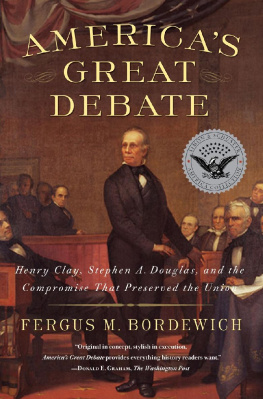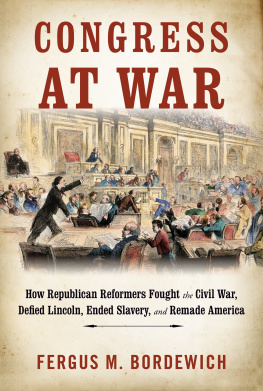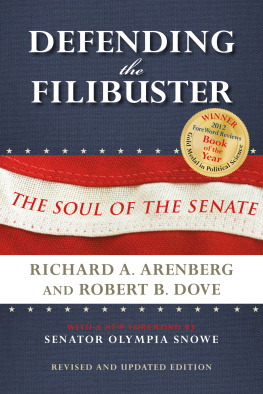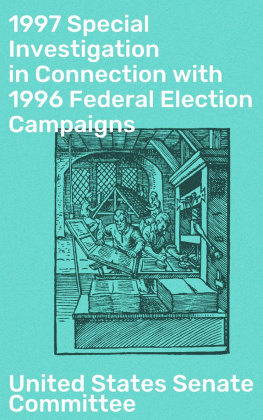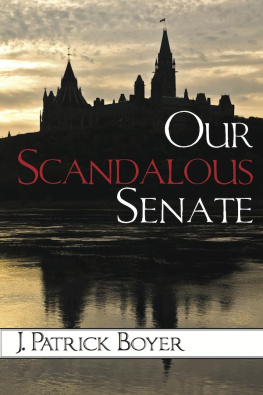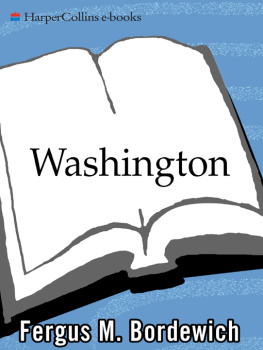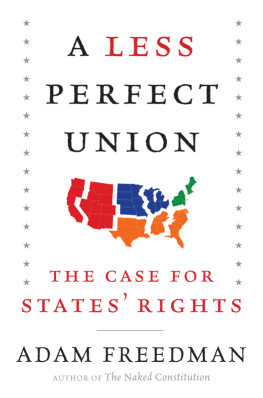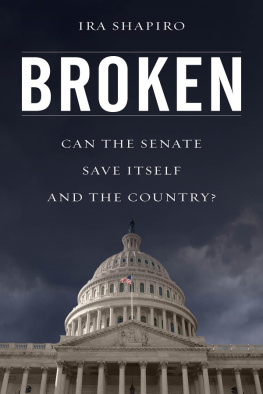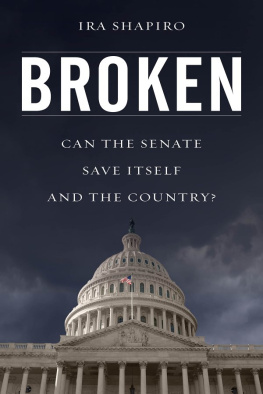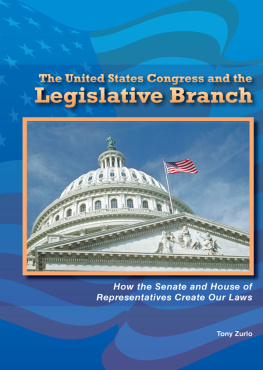Throughout the writing of Americas Great Debate , I benefitted from the constant encouragement of United States Senate Historian Donald A. Ritchie and his predecessor Richard Allan Baker, who patiently fielded countless queries, and shared with me both their rich insights into the workings and personalities of the antebellum Senate, and the resources of their office. They helped to make this a far better book than it might otherwise have been. Brian McLaughlin opened to me the doors of the Senate Library, while Senate Curator Diane Skvarla and assistant curator Amy Burton invited me to witness the restoration of the long lost portrait of Henry Clay by Phineas Staunton that now hangs in the Capitol. Emily Claire Howie of the Library of Congress was exceptionally helpful during the initial phase of my research, drawing my attention to many documents that I would never have found without her. The staff of the LOCs manuscript collection was once again unflagging in their efforts to answer my research inquiries. At a time when attacks against the federal government have grown feral, these individuals and departments represent sterling examples of public money well spent in the greater public interest.
Many colleagues and friends enriched this book in ways great and small, pointing me toward new sources, and challenging me both to deepen my thinking, and to rethink ill-planned lines of research before they led me into the deep weeds of irrelevance. At the risk of overlooking others, I owe particular thanks to Orville Vernon Burton, whose support has been unbounded, as well as to Kathleen Burke, Lydia Chavez, Rebecca Edwards, Paul Finkelman, Stanley Harrold, Graham Russell Gao Hodges, Jill Jonnes, Kate Clifford Larson, David Lipton, Randy K. Mills, Bernard Powers, Milton Sernett, and Emory Thomas. Conversations with Henry Clay biographer Robert V. Remini and Mark J. Stegmaier, whose meticulous Texas, New Mexico, and the Compromise of 1850 provided an invaluable key to an unusually intricate phase of southwestern history, were more valuable to me than perhaps they knew.
Expert assistance from research libraries and archives at many institutions made my work immeasurably easier. Among these were the Filson Historical Society, in Louisville; the United States Military Academy at West Point; Harvard Universitys Houghton Library; the Princeton University Library; the Margaret I. King Library at the University of Kentucky; the Bancroft Library at the University of California Berkeley; the South Carolina Historical Society; the Texas State Library and Archives at Austin; the Center for American History and the Nettie Lee Benson Center at University of Texas, Austin; and the splendid new New Mexico State Records Center and Archives, at Santa Fe, where Samuel Sisneros spent much of his valuable time helping me make my way through many manuscript collections and other sources. Jennifer Haines of the Seward House Museum, in Auburn, NY, provided me with important documentation testifying to William Sewards assistance to fugitive slaves.
My good friend Maggie Rivas-Rodriguez of the University of Texas was a generous host to me in Austin, and along with her colleagues Dan Arellano and Emilio Zamora helped to illuminate for me the history of pre-independence Texas, the Texas Republic, and the early statehood period from a Latino point of view. In New Mexico, John Pen LaFarge was, as he has often been, both generous with his own keen insights and with introductions to others, in particular Tomas Jaehn of the Fray Angelico Chavez History Library in Santa Fe, who ferreted out documents that I would surely have otherwise overlooked. Jerome V. Reel was an exceptionally charming companion during my visit to Clemson University and the home of John C. Calhoun. Bettis C. Rainsford and Tricia Price Glenn were kind hosts and guides during a day spent in Edgefield, South Carolina, which perhaps more than any other district of its size embodied the spirit and values of the antebellum Deep South.
Without the constant encouragement of my editor, Bob Bender, and my agent, Elyse Cheney, this book would have been no more than a mere gleam in its authors eye.

JACK BARSCHI
FERGUS M. BORDEWICH is the author of several books, among them Washington: The Making of the American Capital and Bound for Canaan , a national history of the Underground Railroad. He lives in Washington, D.C.
VISIT THE AUTHOR AT WWW.FERGUSBORDEWICH.COM
FOR MORE ON THIS AUTHOR: Authors.SimonandSchuster.com/Fergus-M-Bordewich

MEET THE AUTHORS, WATCH VIDEOS AND MORE AT
SimonandSchuster.com
SELECTED BIBLIOGRAPHY
BOOKS
Abel, Annie Heloise, ed. The Official Correspondence of James S. Calhoun. Washington, D.C.: U.S. Government Printing Office, 1915.
Adams, Henry. The Education of Henry Adams. New York: Modern Library, 1931.
Allen, William C. History of the United States Capitol: A Chronicle of Design, Construction, and Politics. Honolulu: University Press of the Pacific, 2005.
Ambrose, Stephen E. Halleck: Lincolns Chief of Staff. Baton Rouge: Louisiana State University Press, 1990.
Anderson, Gary Clayton. The Conquest of Texas: Ethnic Cleansing in the Promised Land, 18201875. Norman: University of Oklahoma Press, 2005.
Annals of Congress. Online at www.memory.loc.gov.
Appendix to the Journals of the Senate, of the Third Legislature, State of Texas, Second Session. Austin: W. H. Cushney, 1850.
Avary, Myrta Lockett, ed. Recollections of Alexander H. Stephens. New York: Doubleday, Page, 1910.
Baker, George E., ed. The Works of William H. Seward , Vol. 1. New York: Redfield, 1853.
Bancroft, Frederic. The Life of William H. Seward , Vol. 2. New York: Harper & Bros., 1900.
. Slave Trading in the Old South. New York: Frederick Ungar, 1959.
Bancroft, Hubert H. History of California. San Francisco: History Company, 1888.
Barker, Malcom E. San Francisco Memoirs, 18351851: Eyewitness Accounts of the Birth of a City. San Francisco: Londonborn, 1994.
Benton, Thomas Hart. Thirty Years View: A History of the Working of the American Government for Thirty Years, from 1820 to 1850 , Vol. 2. New York: D. Appleton, 1856.
Berlin, Ira. Many Thousands Gone: The First Two Centuries of Slavery in America. Cambridge: Harvard University Press, 1998.
Bieber, Ralph P. Southern Trails to California in 1849. Philadelphia: Porcupine, 1974.
Bigelow, John. Memoir of the Life and Public Services of John Charles Frmont. New York: Derby & Jackson, 1856.
Bigler, David L. The Gold Discovery Journal of Azariah Smith. Logan: Utah State University Press, 1996.
Binkley, William Campbell. The Expansionist Movement in Texas. Berkeley: University of California Press, 1925.
Bleser, Carol. Secret and Sacred: The Diaries of James Henry Hammond, a Southern Slaveholder. New York: Oxford University Press, 1988.
Bordewich, Fergus M. Bound for Canaan: The Underground Railroad and the War for the Soul of America. New York: Amistad, 2005.
. Killing the White Mans Indian: Reinventing Native Americans at the End of the Twentieth Century. New York: Anchor, 1996.
Braden, Waldo W., ed. Oratory in the Old South, 18281860. Baton Rouge: Louisiana State University Press, 1970.
Braider, Donald. Solitary Star: A Biography of Sam Houston. New York: G. P. Putnams Sons, 1974.

